#paters dream journal
Text
I had a fallout themed nightmare. I’ve never even played fallout. Also there were dinosaurs cuz of course there were.
#got kidnapped by this dude who was like hey. you just woke up and now the worlds ended. I’m going to do science experiments on you now okay?#it was me and this other girl. and eventually these people who just run around in big fuck off fancy trucks#collecting pre-end of world technology#showed up to where we were being kept and we were like hey. while ur raiding this place mind if we. run away while the guys keeping us here#aren’t looking? and they were like yeah sure take this car#so we escaped and ended up living in one of the just. fully functional abandoned homes that existed in their ‘territory’#and then I woke up#paters dream journal
4 notes
·
View notes
Text
journal entry #3
In the ways of seeing videos, Ruben Pater mentioned that in oil painting, women usually were shown as a sight to be looked at. He claimed that women see their self base on this picture and try to present their self as society wants. But in nowadays, people started to see the wrong assumption and trying to change this believe. It is harmful and women should be valued for their achievements, abilities, and character rather than reduced to objects to be looked at. One recent example of using women for objectification purposes is the controversial Victoria's Secret fashion show. The fashion show, that featured models wearing lingerie and walking down a runway, has been criticized for maintaining harmful beauty standards and objectifying women's bodies. This commercials try to work on our imagination that we try to achieve things that we do not have but we can see all around and dream about having them.
Both European oil paintings and today's publications seems to aim same goal which is commercing wealth and joy. Each in a different manner. As we can study it from old oil paintings that there are trace of rich people all over but nothing about working class.
In this new world we are surounded by other lives on walls and in our screens which try to persuade us and show glamoures.
0 notes
Text
I’m With You in Rockland
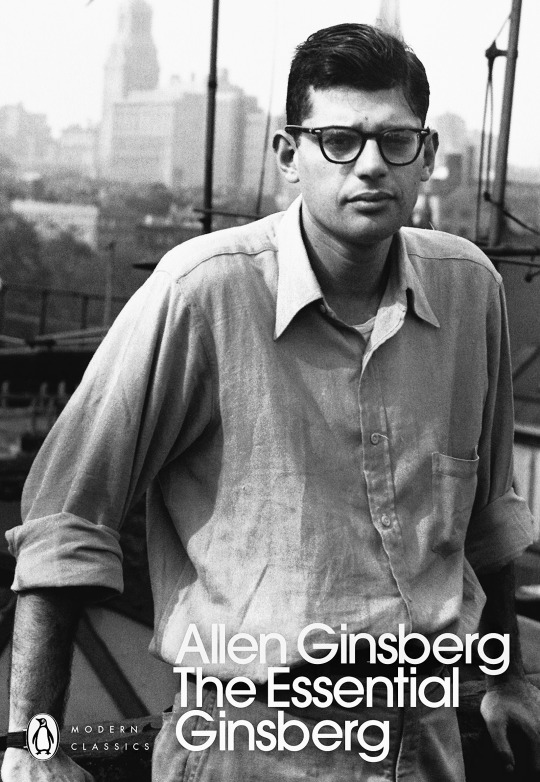
“who dreamt and made incarnate gaps in Time & Space through
images juxtaposed, and trapped the archangel of the soul
between 2 visual images and joined the elemental verbs and set
the noun and dash of consciousness together jumping with
sensation of Pater Omnipotens Aeterna Deus
to recreate the syntax and measure of poor human prose and stand
before you speechless and intelligent and shaking with shame,
rejected yet confessing out the soul to conform to the rhythm
of thought in his naked and endless head”
-Allen Ginsberg, Howl-
In 1948, some eight years before the publication of Howl, Allen Ginsberg writes in his journals:
“...I realised that what I was seeing had been there all the time—indeed excited in me a recognition of that aspect of the imagination which is referred to as the eternal—longer than my own life, extending beyond my life and my former consciousness. I was staring at no human objects except the tops of buildings and at nature. Of the human objects, I remember that I understood in this one glance, their utility and significance.”
Reminiscent of William Blake’s visionary exclamation in The Sick Rose that “The invisible worm/ That flies in the night/ ...Does thy life destroy,” Ginsberg here hurls himself into the dark embrace of sensory conversion, an experience he likens to “...hearing the doom of the whole universe, and at the same time the inevitable beauty of that doom.” The voice, one he attributes to Blake himself, is “tender and beautifully... ancient,” a trans-generational everyman but quite patently aligned with divine presence nonetheless—“...this big God all over,” Ginsberg claims, and “...the whole purpose of being born was to wake up to Him.”
This emphasis on spiritual metamorphosis is in itself the core of Blake’s artistic legacy. Recalling its impact on him, Ginsberg writes in Psalm IV:
“Now I’ll record my secret vision, impossible sight of the face of God:
It was no dream, I lay broad waking on a fabulous couch in Harlem
having masturbated for no love, and read half naked an open book of Blake
on my lap
Lo & behold! I was thoughtless and turned a page and gazed on the living
Sun-flower
and heard a voice, it was Blake’s, reciting in earthen measure:
the voice rose out of the page to my secret ear never heard before—
I lifted my eyes to the window, red walls of buildings flashed outside,
endless sky sad Eternity
sunlight gazing on the world, apartments of Harlem standing in the universe—
each brick and cornice stained with intelligence like a vast living face—
the great brain unfolding and brooding in wilderness!—
Now speaking aloud with Blake’s voice—
Love! thou patient presence & bone of the body! Father! thy careful watching and waiting over my soul!
My son! My son! the endless ages have remembered me! My son! My son!
Time howled in anguish in my ear!
My son! My son! my father wept and held me in his dead arms.”
Threaded with tumultuous passions, the lines build, culminating in a triumphant ecstasy perhaps best embodied in Blake’s Jerusalem when the “spirit of Jesus” recites his “mild song”:
“Awake! awake O sleeper of the land of shadows, wake! expand!
I am in you and you in me, mutual in love divine:
Fibres of love from man to man thro Albion’s pleasant land.”
In this way, we see Ginsberg’s commitment to Blake’s “great brain unfolding” inside his own psychological evolution. After all, his were troubled times, laden with social and interpersonal conflicts brought into sharp focus via the existentialist thrust of post-war discontent and its associated alienations. Message after message flow through his earlier poetry—in the vein of Blake and, arguably, his nineteenth-century prophetic counterpart, Whitman—that “The weight of the world/ is love... the burden of life/ is love” and tolerance forms the heart of any landscape charged with blood of yours or mine. That and the fervent heat of self as one but always in connection. Always in a “kelson of the creation,” the spine Whitman translated from nautical simplicity to binding universal.
As Ginsberg writes in 1949, “Destiny itself is sick. The rose is sick. We must be doctors. We are the sickness.” Part-clarity, part-recognition, it comes as no surprise that he aligns himself with Blake’s fundamental conviction that civilisation in its ideal form is based on both integration and equilibrium, a phenomenon Ginsberg explains in 1988 as:
“...raising the whole man, Albion, requires a balance of imaginative faculty, emotional faculty, rational faculty, and a firm body.”
It requires an understanding of its antithesis and, as Ginsberg liberally imparts throughout his intertextual oeuvre, a wise regard for Blake’s immortal line: “I must Create a System, or be enslav’d by another Mans.” And no, not as misguided worship of pseudo-heroic masculinities or their “selfish glooms and exploitations.” Not as fear. Not as betrayal.
But as realisation of the dream.
Predictably perhaps, Ginsberg doubted prior to its completion that Howl would ever be fondly received, either publicly or critically. Of the process, he later recollects:
“I sat idly by my desk at the first floor window facing Montgomery Street [in San Francisco]… I began typing not with the idea of writing a formal poem, but stating my imaginative sympathies, whatever they were worth. As my loves were impractical and my thoughts relatively unworldly, I had nothing to gain, only the pleasure of enjoying on paper those sympathies most intimate to myself and most awkward in the great world of family, formal education, business and current literature.”
To speak the unspeakable, then—to die but to live in the space of sentiments now perceived as emancipatory heir to the tightly structured terza rima of Dante’s Inferno—asserts itself as heartfelt mission. “I saw the best minds of my generation destroyed by madness,” he writes. And this, too, emerges in a dual state; that of solace and struggle—an inner demon reckoning for meaning, and sated by belonging only in so far as Ginsberg finds a place for himself in the rabid decomposition of the “yacketayakking screaming vomiting whispering facts and memories and anecdotes and eyeball kicks and shocks of hospitals and jails and wars.”
Then again, no one said the mountain wasn’t savage. As Ginsberg relays in 1986:
“The unworldly love hypostatised as comradeship through thick and thin with Carl Solomon rose out of primordial filial loyalty to my mother, then in distress. Where mother love conflicts with social facade, the die is cast from antiquity in favour of sympathy.
Blocked by appearances love comes through in the free play of the imagination… a shrewd humour that protects our unobstructed sympathy from chaos. The matter is in objective acknowledgment of emotion.”
Here, couched in common chords, the litany of us remains. We of ourselves, we of inheritance. Writers of our own bane and that which time bequeaths to ever on and onwards. As for questions? “What sphinx of cement and aluminium bashed open their skulls and ate up their brains and imagination?” What—or who, indeed? For catalysts light those “thousand years” on fire and who doesn’t love, just a little bit, Ginsberg’s desire for “a clean Saxon four-letter word” to gut the throat of the status quo and thrive?
Framed as a strident fuck you to the insane asylums on behalf of those “butchered out of their own bodies,” Ginsberg segues into his final haunting refrain. With you and not; with us—and utterly alone. In pieces. Apocalyptic. He writes:
“...we wake up electrified out of the coma by our own souls’ airplanes roaring over the roof they’ve come to drop angelic bombs the hospital illuminates itself imaginary walls collapse O skinny legions run outside O starry-spangled shock of mercy the eternal war is here O victory forget your underwear we’re free”
So it beats. In crisis. In tears. Bastardised in the silent scream of now, and then. Blake’s Urizen, just as Ginsberg reimagined in 1949, stands unflinching:
“‘Eternity shuddered when they saw
Man begetting his likeness
On his own divided image.’
I dream and dream.
I can face anything but reality
I can do anything but what is real
I can be any actor but myself:
I can write any poem but my own.
Boasting
Desks are dusty.
Money, money, work and worry.”
And like that, poleaxed, paused, shuddered out and shaking, we ask: Is this a glimpse of hallowed hell? Ginsberg’s Moloch fleshed as one but coalesced with Blake’s undying spectre—the chilling prospect that we might willingly dance naked “to the timbrels of war,” become our own disastrous hallucinogenics. Hence the frantic liturgical strains of “holy” so many times invoked to wrest this world into a word. A single yearning syllable, twice-gasped, aroused. The antidote to:
“Dreams! adorations! illuminations! religions! the whole boatload of sensitive bullshit!
Breakthroughs! over the river! flips and crucifixions! gone down the flood! Highs! Epiphanies! Despairs! Ten years’ animal screams and suicides! Minds! New loves! Mad generation! down on the rocks of Time!”
Halle-fucking-lujah, as they say. Innocence might be one half of a Blakean contrary, but a text that truly talks suffers no cowards at the crossroads. Howl it out if you like; there’s a name for it. You just have to decide if it’s really yours.
So it is that the line between Ginsberg and his philosophical forebears holds. The “poetickall bombshell” of that first reading at the Six Gallery in 1955 imbued him with the energies of an enlightenment comparable to Blake’s revolutionary Romanticism. Just as he wanted, Ginsberg hailed a return “to the original religious shamanistic prophetic priestly Bardic magic!” Others noted the prominent sense of dawn or, as Michael McClure writes, that of revelation:
“In all of our memories no one had been so outspoken in poetry before—we had gone beyond a point of no return—and we were ready for it, for a point of no return. None of us wanted to go back to the grey, chill, militaristic silence, to the intellective void—to the land without poetry—to the spiritual drabness. We wanted to make it new and we wanted to invent it and the process of it as we went into it. We wanted voice and we wanted vision... Ginsberg read on to the end of the poem, which left us standing in wonder, or cheering and wondering, but knowing at the deepest level that a barrier had been broken...”
Something of a love of protest, then. Or simply love, perhaps—transformative in a moment of flux and necessary to our holistic perception of ourselves as human. “The solitary and haunted individual is now the mass,” Ginsberg writes in his journal. As such, the poet “who will speak for his own wild naked mind will also speak for the mass.”
Thus, we press forward in reciprocation, “voice of the tender rock” ennobled beneath “the starry dynamo,” blessed beyond “the machinery of night.” Stripped save for a cry rhapsodic, raw down to the art of all our lust to be exactly who we are.
#writing#quote#poetry#love#life#art#meaning#existential musings#all eternal things#love in a time of...#intelligence quotients#depth perception#understanding beyond thought#literary sensibilities#essential thinking#perspective matters#creative power#intertextuality of sorts#romanticism is not dead#revolutionary road#howl for it#underneath it all#this is who we are#elisa english#elisaenglish
1 note
·
View note
Text
My Heart is On My Sleeve and my Fics are on AO3

AO3 | Honesty Hour | Logan’s Master Schedule | Art
Current Stories:
💙💚Meus ex Machina💛🧡: Intrulogical Superpower AU. Chapter 16, Lucas, is now up! Platonic Dukeceit bonus companion story: Progression (complete)
💚🩵Villains Aren't Born. They're Made.: Intruality ancient deity AU
🩵💙Where the Air is Sweet: a month of short and sweet Logicality fluff
Increasingly Inaccurately Named Coming Soon List:
Thrall - The conclusion of the vampire/werewolf Beside Me universe, takes place immediately after Ours and Dee
Just Like Magic - Endgame QPP Mage Loceit and more
Echoes of Our Future - Platonic (?) Intrulogical, canon(ish)verse, part of Echoes of the Past October writing event
Recently Completed Stories:
Mise Out of Place: The Patton and Remus Cooking Show we knew we all wanted. Keep the fire extinguisher handy, Virge.
Decoherence: Intrulogical human AU for @tss-storytime
A Light in the Darkness - Magical AU, Logan-centric, Will o' the wisps
Ours, a Royality Week story set in the same universe as Beside Me, Dee, and the upcoming Thrall.
The Uses of Adversity - Logince butterfly story from the Happily Ever After universe in which Janus met Remus at Jack's party. He never walked home alone and never became friends with Logan.
Overruled - Butterfly story from the Happily Ever After universe in which Logan never met Kelly. He does, however, meet Janus and Remus
Recent One-shots:
You'll Ruin the Surprise - (Good Omens)
Time Travelers Point and Laugh at Archeologists - Intruanalogical "modern" magic AU
Lucas Is a Part of You That Loves You - canonverse Orange!side
A Winter's Tale- Intrulogical human AU
Cold Hands, Warm Heart - Remy/Janus canonverse fluff
The Tutor, Intrulogical high school AU
Recent multi-chap fics:
French Kiss: Tale of the Revolution - Dukeceit. What happens when a revolutionary spy falls in love with the future King of France? What happens when Prince Remus loves him back
Arizona's Journal - Select entries from Arizona Tate's journal while Remus worked in Copenhagen. Takes place between And I Feel Fine and Happily Every After
Everyone Leaves - Canonverse collab. with @lost-in-thought-20
Do Androids Dream of Electric Jam? - Intrulogical, Roceit, Future Dystopia
Variations on a Sin - Intrulogical Week story, prequel to Play Us a Song
Just Like Magic - Magic AU, platonic Loceit (WIP)
Revisions, A New Year Old Tropes Event Story
Out of the Machine, Superheroes, Villains, and Vigilantes
Dee - Sequel to Beside Me
Punks, Poets, Parents Human AU, punk!Remus
Smoke, Snakes, and Soulmates - collab. with @typically-untypical, @vexelore, and @thecrowslullaby for @treeni
A Little Bit of Love (Wouldn’t Do Us Any Harm) - part of the Side by Side in the Mindscape canon-ish series (Masterpost)
Matchr, the final story in the History | Matchr series
Play Us A Song (Human AU, Logince, past Intrulogical) - [ AO3 ]
Side by Side in the Mindscape - Includes Shackled, Servatis (a) Curiositas (Saving Curiosity), Intrusive Truths, To the First and the Last , and entire Overture - Canon-ish Sanders Sides Fan Fic, Post-POF/Post WTIT ❤️🧡💛💚🩵💙💜🩷
The Happily Ever After/Logan, Janus, Roman, Remus series
Happily Ever After (T)- Logan Sanders thought he had secured a fairy tale ending when he married Kelly Croft, mother to his first child. Perhaps Logan should have spent less time in the non-fiction sections and more time reading actual fairy tales. (2019 - 2021)
Objections (M)- Janus and Logan meet in law school. Logan and Roman meet. Janus and Roman meet. Janus and Remus meet. Buckle up, it's a bumpy ride. (2001 - 2003)
And I Feel Fine (T)- 12/21/12 was supposed to be the end of the world. Roman and Remus Prince, Janus Pater, and Logan Croft will soon find out what this year has in store for them. (2012)
What Might Have Been (M) - The butterfly effect gets all the press, those tiny little changes that ripple through time. It’s easy to forget that the big decisions matter, too. (2021 - 2023)
Other Series
Play Us A Song (Human AU, Logince, past Intrulogical) - [ AO3 ]
Beside Me (Vampire AU, Dukexiety, ...?) - [ AO3 ]
History | Matchr (Human AU, future Intrulogical, Roceit, past Dukeceit), including Matchr, the final story in the series
Side by Side in the Mindscape - Includes Shackled, Servatis (a) Curiositas (Saving Curiosity), Intrusive Truths, To the First and the Last , and entire Overture - Canon-ish Sanders Sides Fan Fic, Post-POF/Post WTIT ❤️🧡💛💚🩵💙💜🩷
Butterfly Stories - Overruled (Alternate to Objections) (WIP)
Remy & Emile - Happily’s Remile needed their own fic
Shorts and One-Shots, Event Series
Happily Ever After Minis (Series) - Intrulogical and Roceit, post Happily Ever After and/or post Happily Ever After/WMHB
Blink and You’ll Miss It - Nicomas/Karrot Kings
Analogical Week 2021 Series - Some fluffy platonic Analogical
May Flowers Event 2021 - Fluffy & angsty ship stories (WIP)
Holiday Stories
3.14159265 ... - Pie-based Pi Day Celebration with a fluffy crust
The Sides Celebrate Hanukkah - platonic DRLAMPT
Fear Response - Halloween exchange fic, rated G, shapeshifter AU
Anything - Halloween exchange fic, rated M, human/magic AU
Doctor Who/Sanders Sides Crossovers
The Best of Humanity -The Doctor must find a way to save humanity from its greatest threat. Hint: humanity’s greatest threat isn’t off-planet. #you dear sir are a timelord
More Time With You - (WIP) - A soulmate crossover AU between Sanders Sides and Doctor Who. Yes, that escalated quickly. Sides are Souls.
Run - The Heart Breaker I Can’t Make Myself Delete: This was originally meant to be the last chapter of More Time With You
Some of my favorite stories from the series that I like to call out:
Rain - Intrulogical, post Happily Ever After/WMHB
A Thousand Years and a Thousand Scars - Intrulogical, post Happily Ever After (Angst & Fluff)
Morning Coffee and Kisses - Intrulogical, post Happily Ever After/WMHB
Arizona's Journal (WIP)
This link is a little finicky: Tumblr Archive
Side Blogs
(As in, my other Tumblrs, not blogs for the Sides but OML don't get me started...) I've hit max links, so just the names.
edupunkbitch - (vent blog. i swear, rouse the rabble, whine, rant, and complain)
intrulogialweek - my passion :D
intrualityweek - the passion I didn't know I had
laboratorysoundsystem - Logan's lab has a sound system that plays Spotify near non-stop
eduwrites - nothing there yet... working on it
loganslaboratory - a place for my infrequent visual art experiments
saviorofdandysuits - Good Omens side blog
doctorthembo - Doctor Who side blog
captains-scribe - Our Flag Means Death side blog
#fanfic#i've got room in my hearts for many fandoms and so do my fics#sanders sides#doctor who#intrulogical#intruality#logicality#moceit#intruloceit#roceit#remile#logince#analogical#❤️🧡💛💚🩵💙💜🩷#i say both but I've got stories for three fandoms in here :D#colored text
77 notes
·
View notes
Text
Readings for 2020
I aim to read a book a week, with ten poetry books to be also read along the year. I’ve chosen not to ration along fiction/nonfiction and other lines, except poetry, and just choose whatever I want to read.
I’ve also excluded academic stuff (at least in my field) from this list. Only 62 left to go!
Main Reads:
The Pre-Raphaelite Tragedy by William Gaunt
The Books of Earthsea by Ursula K. Le Guin
The Time’s Traveller’s Almanac edited by Ann and Jeff Vandermeer
Mythe et Épopée I. II. III. by Georges Dumézil
She-Wolves by Helen Castor
The Snow Leopard by Peter Matthiessen
Into the Unknown by Alexander Maitland
Inventions of the Middle-Ages by Chiara Frugoni
The Assassins by Bernard Lewis
The Southern Gates of Arabia by Freya Stark
Poetic Edda trans. by Carolyne Larrington
The Tin Drum by Günter Grass
Letters from Iceland by W.H. Auden and Louis MacNeice
Kolyma Tales by Varlam Shalamov
Les Bouts du monde by Roger Willemsen
The Face of War by Martha Gellhorn
The Collected Works of Kahlil Gibran
Bosnian Chronicle by Ivo Andrić
The Cloister and the Hearth by Charles Reade
The Early Romances of William Morris
Feudal Society by Marc Bloch
The Renaissance: Studies in Art and Poetry by Walter Pater
Behind the Wall by Colin Thubron
The Wanderer and Other Old English Poems
Getty Apocalypse
Winchester Psalter Miniature Cycle
Northanger Abbey by Jane Austen
Journaux de Guerre 1939-1948 by Ernst Jünger
Auriez-vous crié "heil Hitler" ? : Soumission et résistances au nazisme : l'Allemagne vue d'en bas (1918-1946) by François Roux
Life of William Morris I & II by J.W. Mackail
The Pre-Raphaelites by Aurélie Petiot
The House of Borgia by Christopher Hibbert
The Prince in Splendour: Court Festivals of Medieval Europe by Richard Barber
The Grasmere Journal by Dorothy Wordsworth
A Story as Sharp as a Knife: The Classical Haida Mythtellers and Their World by Robert Bringhurst
In Patagonia by Bruce Chatwin
Mani & Roumeli by Patrick Leigh Fermor
Seeds of Change by Henry Hobhouse
The Wannsee Conference and the Final Solution by Mark Roseman
We by Yevgeny Zamyatin
Voyageurs Arabes ed. La Pleiade
The Writer’s Map Huw Lewis-Jones
Coventry by Rachel Cusk
Lesbians Nuns by Rosemary Curb and Nancy Manahan
The Closed Doors by Pauline Albanese
The Book of Disquiet by Fernando Pessoa
Mrs Bridge by Evan S. Connell
Becoming Eve by Abby Stein
Red Clocks by Leni Zumas
The Pre-Raphaelite Dream by William Gaunt
The Book of Legendary Lands by Umberto Eco
Icelandic Folk Legends by Alda Sigmundsdóttir
Poetry:
Selected Poems of Yevtushenko
Golden Treasury of English Verse ed. by Francis Turner Palgrave
Selected Poems of Edward Thomas
Selected Poems of Wilfred Owen
Selected Poems of Rupert Brooke
Selected Poems of Anna Akhmatova
Georgian Poetry 1913-1915
Selected Poems and Songs of Robert Burns
If not, Winter: Fragments of Sappho trans. Anne Carson
The Complete Poems of Anna Akhmatova
6 notes
·
View notes
Text
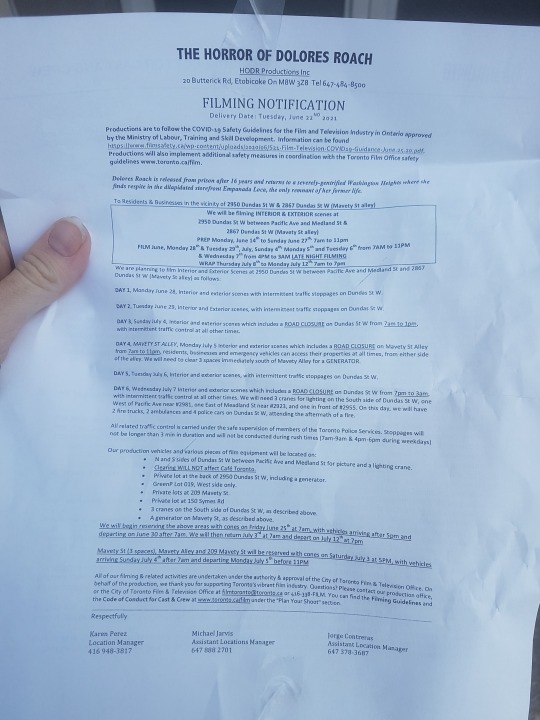
-0.25 yrs: Biblioplex slipped a brown bear into our crib;
1.5 yrs: the earliest possible age according to RA_TheLawOfOne , Chernobyl was melted down ;
4 yrs: we were taken to PeggysCove to cut our feet ;
7 yrs: MrSells had corralled us into a class where he could study the latest foreign exchange student ;
10 yrs: Pater had a psychotic episode and kidnapped us so that Yawgmoth and Serra could meet us in person ;
17 yrs: RupertRaj , a trans psychologist , advises us to move in with one of his patients , Anatole ;
23 yrs: betrayed by Pater (20080101: "FUCKING BASTARD!!!") and abandoned by friends and family , moved to Toronto on the same day as Braids , Conjuror Adept ;
27 yrs: Lights , Camera , Action ;
30 yrs: authored , in line with Sarah and Lily , CoreArchitecture , which Flynn and Yawgmoth stole ;
age 35: today(!) logged on to the #Internet for five fucking minutes to post an update about the VorzaniConjecture , had our dream journals hacked , scraped , appropriated , and proliferated ;
today_20210623160659 , took video of Kris , Ra , Adam , and Amun dressed up as cops , asked them on their cameras and ours:
"do you know what a 1061 is ? " _
0 notes
Photo
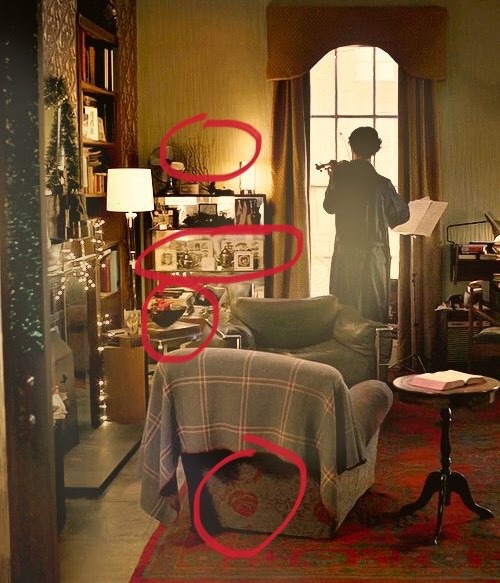
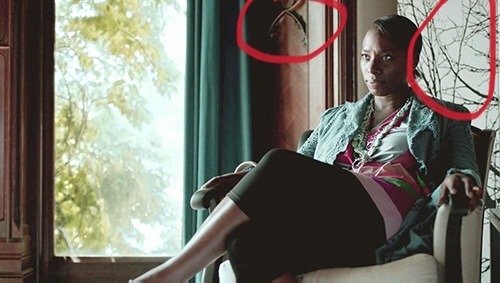
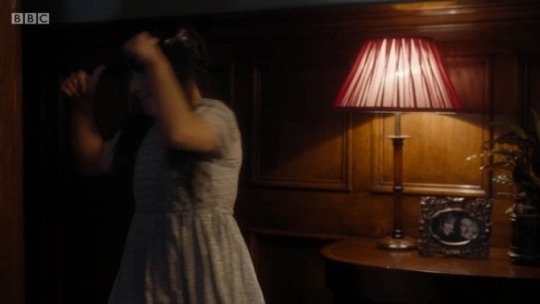
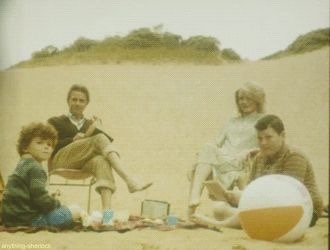

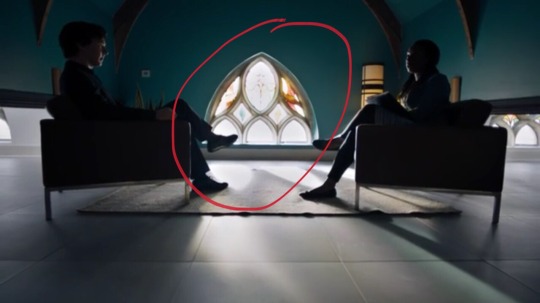
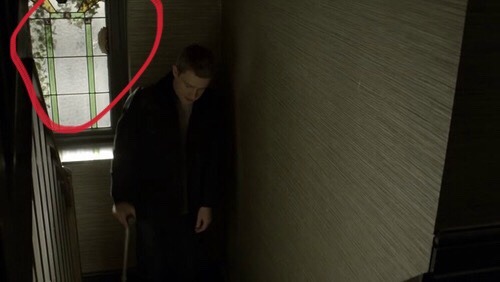
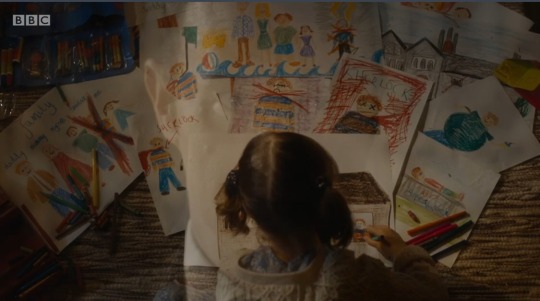

Recycling Images from 221 Part I
And we’re back! Sorry I haven’t updated the blog for such a long time but things really have been very busy. You’ll have seen on the news about how Sherlock recovered the Mona Lisa. He described it as “an utterly dreary affair” and was much more interested in the the case of a missing horseshoe and how it was connected to a bright blue deckchair on Brighton beach.
I’ll try to write everything up when I get a chance but it’s not been missing portraits and horseshoes that have taken up my time.
I’m going to be a dad.
I mean, I thought I’d spent the last few years being a Dad to Sherlock, but it really doesn’t compare. The baby runs all of our lives. Maybe not THAT different to [….] I’ve fought in two wars, my best friend once faked his own death but none of that [….] terrifying and amazing and the biggest adventure I’ve been on.” The Mona Lisa.
Yes, we're back to the da Vinci references.
The Vitruvian Man with John's head pasted on of course, but also, in their first session, Ella points out to John that he reads her writing upside down. da Vinci wrote his personal journals upside down, and backwards. Like John, he was also left-handed. da Vinci was brought up on charges twice for being with men in a sexual capacity, but basically acquitted both times (it carried the sentence of death).
Walter Pater in the Victorian age thought the Mona Lisa resembled a “vampire”. In his possible texts with "E", that is the word used by the other about them being up late. Sussex Vampire, the metaphors involved in John's dysfunctional family life, and how Eurus fits is in this: http://221bloodnun.tumblr.com/post/157084153699/the-room-of-eurus-holmes
Missing family portraits. If you look at the photos of Sherlock's parents vs the ones in the film Mycroft is watching, they don't look like the same people. Mummy might have dyed her hair, but who has the long hair that is bending over? Did Uncle Rudy run the camera, so that is Aunt X? Or is it someone piecing together what they must have looked like, without knowing ahead of time from the photo in the hall? Similarly, why does Sherlock have different hair colors in separate drawings by Eurus? Guessing these are all visuals from elsewhere that have been passed along in the EMP or dream state.
Side note, still wondering if 221B would have looked like that before the possibility of John as a roommate or if some deduction about his tastes was done, and pieces added. Sherlock doesn't spend much time in his own bedroom, and it has older pieces, but the frosted door is possibly custom to avoid anyone hiding.
5 notes
·
View notes
Quote
If one tried to construct the Temple of Literature from only the fifty “pillars” below, it would collapse spectacularly. Nevertheless, here is a contingent group of titles that, to paraphrase Christopher Higgs, if I hadn’t read and reread over the years, I wouldn’t be myself. How much that is worth, I’m not sure.
1) Djuna Barnes—Nightwood
2) Charles H. Kahn—The Art and Thought of Heraclitus (an edition of the fragments with commentary)
3) William Shakespeare—Sonnets, Tragedies, most of the Comedies . . .
4) Eileen Myles—Inferno, The Importance of Being Iceland.
5) Charlotte Brontë—Jane Eyre, Villette
6) Jane Austen—Emma, Mansfield Park, Pride and Prejudice, Persuasion
7) Marquis de Sade, 120 Days of Sodom, Julliette
8) Shoshana Felman, “Turning the Screw of Interpretation” (from Writing and Madness)
9) Herman Melville—Moby-Dick, Billy Budd, The Confidence Man, and the shorter works
10) Sir Thomas Browne—Urn Burial, Religio Medici, correspondence
11) Walter Pater—The Renaissance, Imaginary Portraits, “A Child in the House,” Marius the Epicurean
12) Richard Hughes—A High Wind in Jamaica, In Hazard
13) George Eliot—Middlemarch, Daniel Deronda
14) Michel Foucault—The History of Madness, The Birth of the Clinic, The Order of Things
15) Joanna Russ—The Female Man, We Who Are About to . . ., On Strike Against God, “Souls,” The Two of Them
16) Guy Davenport—Tatlin! The Jules Verne Steam Balloon, Da Vinci’s Bicycle, The Death of Picasso, Twelve Stories, A Table of Green Fields, Eclogues, The Geography of the Imagination, The Hunter Gracchus, Every Force Evolves a Form, A Balance of Quinces, The Balthus Notebook
17) Jacques Derrida—Of Grammatology, Writing and Difference, Dissemination, Glas
18) Roger Zelazny—His short fiction in four volumes.
19) F. Scott Fitzgerald—The Great Gatsby, Tender is the Night, the short stories
20) Nathanael West—Miss Lonelyhearts, A Cool Million, The Day of the Locust, The Dream Life of Balso Snell,
21) Henry Roth—Call it Sleep
22) Virginia Woolf—To the Lighthouse, The Waves, Flush, The Years, A Room of One’s Own
23) Vladimir Nabokov—Lolita, Pnin, Pale Fire
24) Mark Twain—Huckleberry Finn, The Diary of Adam and Eve
25) Christina Stead—The Man Who Loved Children
26) Baruch de Spinoza—Ethics, Tractatus Theologico-Politicus
27) William Faulkner—The YoknapatawphaCounty sequence of stories and novels
28) W. H. Auden—The Sea and the Mirror, The Age of Anxiety, The Selected Poems
29) Ron Silliman—The Alphabet
30) Alan Moore & Eddie Campbell—From Hell
31) Alan Moore & Kevin O’Neill—The League of Extraordinary Gentlemen (series one & two)
32) Marilyn Hacker—First Cities, Selected Poems 1965—1990, Squares and Courtyards, Winter Numbers, Desesparanto, Names
33) Junot Diaz—Drown, The Brief, Wondrous Life of Oscar Wao, This Is How You Lose Her
34) Willa Cather—My Ántonia, Song of the Lark, A Lost Lady, My Mortal Enemy, Not Under Forty, Collected Stories (Library of America)
35) Jean Genet—Our Lady of the Flowers, Miracle of the Rose, A Thief’s Journal, Funeral Rites, Querelle de Brest, The Maids, Deathwatch, The Balcony, The Blacks, The Screens
36) James Joyce—A Portrait of the Artist as a Young Man, Dubliners, Ulysses
37) Gertrude Stein—Lectures in America, The Autobiography of Alice B. Toklas, How to Write, Three Lives, Wars I Have Seen, Ida, Lucy Church Amiably, The Making of Americans, Tender Buttons
38) John Livingston Lowe—The Road to Xanadu: A Study In The Ways Of the Imagination
39) Erich Auerbach—Mimesis
40) John Keene—Annotations
41) Honoré de Balzac—Lost Illusions
42) Gustave Flaubert—Sentimental Education
43) William Gaddis—The Recognitions, Carpenter’s Gothic
44) Brian Evenson—The Wavering Knife (contains “Barcode Jesus,” one of the finest American short stories of the last sixty years)
45) Theodore Sturgeon—collected short stories in 13 volumes (1938—1987, indispensible reading)
46) Thomas M. Disch—Camp Concentration, On Wings of Song, Getting into Death (stories), The Man Who Had No Idea (stories), Fundamental Disch (stories, librettos, and essays)
47) Samuel Beckett—Malloy, Malone Dies, The Unnamable, More Pricks Than Kicks, all the plays
48) Malcolm Lowry—Under the Volcano
49) Walter Benjamin—The Writer of Modern Life: Essays on Charles Baudelaire, Brecht, The Arcades Project
50) William H. Gass—Omensetter’s Luck, The Heart of the Heart of the Country, On Being Blue, Willie Masters’ Lonesome Wife, The Tunnel, all the nonfiction.
Some Corinthian Capitals for the 50 Columns Above:
1) Susan Sontag—I, etcetera
The flatness of Sontag fictive prose is seriously off-putting to many readers—and many serious readers at that. She wanted to make her points through architecture, rather than music or ekphrasis. And in this collection of short works, she did. Along with “The Way We Live Now,” they are exemplary. I read and reread them and I always learn from them.
2) Glenway Wescott—The Pilgrim Hawk
This is another miracle of narrative architecture. One corner is left un-built—the one that would have fixated around the homosexual fascination the young chauffeur exerts over the entire party. (The fact that there is so clearly room for it is what suggests that it is there, under the rest of the text.) Right now, you have to fill it in for yourself, but the rest is right there, as pristine as you’d expect to find it in Jane Austen.
3) Michael Cunningham—The Hours
This is one of the most important novels in the development of the American novel because it answers a challenge first articulated by Leslie Fiedler in his 1960 work, Love and Death in the American Novel. Claimed Fiedler, the novel as a genre must strive to encompass a rich set of deep and resonant relations between a man and a woman. And until the historical situation much improves in terms of equality, the cross-gender friendship at the center of this book is about the best we can hope for that is not just lies and/or simple fantasies.
4) Longus—Daphnis and Chloe
One of the oldest novels and one of the most effective. This is romance stripped to its bones; it’s quite wonderful and filled with narrative magic.
5) Hugo Von Hofmannsthal—The Lord Chados Letter
Whenever I feel myself straying near writers’ block, I read this witty farewell to literature by a young medieval much too full of his own accomplishments, and I go dancing away and back to the writing desk and get happily to work again.
6) Leonid Tsypkin—Summer in Baden Baden.
This astonishing chronicle of pathological gambling addiction is breathless and frightening, and is made more so when we realize that it is the great novelist Fyodor Dostoevsky who was so afflicted. With our return to the present, the ending is heartbreaking as we meet the scholars who are, themselves, addicted to their pursuit of the minutiae of Dostoevsky’s life, and what they have put at stake to pursue their obsessions and make this story recountable. This great short novel is by a Russian doctor and scholar who wrote only one.
“For Big Other on William H. Gass’s Birthday,” by Samuel R. Delany
Maybe if I read all these I’ll be able to soak up an iota of Delany’s greatness.
#samuel delany#temple of literature#literary pillars#william h glass#books#literature#reading list#canon
9 notes
·
View notes
Text
The agonies persist. But so do I.
#I had a dream that there was this disease that basically caused these little worm things to live just under ur skin#and so many people had it even tho it was very easy to cure#becuase dealing with it meant you had soemthing to do with ur life#and if you cured it so you no longer had it that meant there was nothing to ur life anymore#paters dream journal
3 notes
·
View notes
Text
Had a dream I joined a friend of a friends miencraft server and they found me so annoying that they made an event around it. Which is. Objectively pretty funny
4 notes
·
View notes
Text
I had a nightmare about the zombie apocalypse :(
#it was a actually me watching a zombie movie but still scary#it started with explaining how the infection worked#most people were infected. you didn’t show any symptoms for a bit and then you’d be compelled to kill urself and once you died#you’d come back as as#a zombie. the main guy we were following is infected but not a zombie yet#and he goes to visit is parents and then they all get the compulsion and start trying to drown themselfs#both his parents succeed but he fails and when they come back as zombies hauls ass and runs#anyways the bulk of the movie takes place in a grocery store with a bunch of people#some infected some not#and one zombie dude who’s also in the store that they are trying to hide from#I think he was blind? idk#paters dream journal
2 notes
·
View notes
Text
I had a dream and halo was there
#paters dream journal#I was a III and was complaining to literally anyone that would listen that this one dude wouldn’t fight me
3 notes
·
View notes
Text
I havé a lot of nightmares that aren’t even scary it’s just: everyone very mean to me :(
3 notes
·
View notes
Text
Had a dream that it was my birthday and John halo guy was at my birthday party
#and also a bunch of other stuff happened. but ugh. too lazy to explain#I woke up to my dad screaming at the top of his lungs at me#and all I did was lie there thinking ‘but it’s my birthday :(‘ before I was like wait no the fuck it isnt???#paters dream journal
2 notes
·
View notes
Text
I had a dream last night that I was Kelly of halo fame running around trying to cram before a university final, but I had to take a break to kill this thang
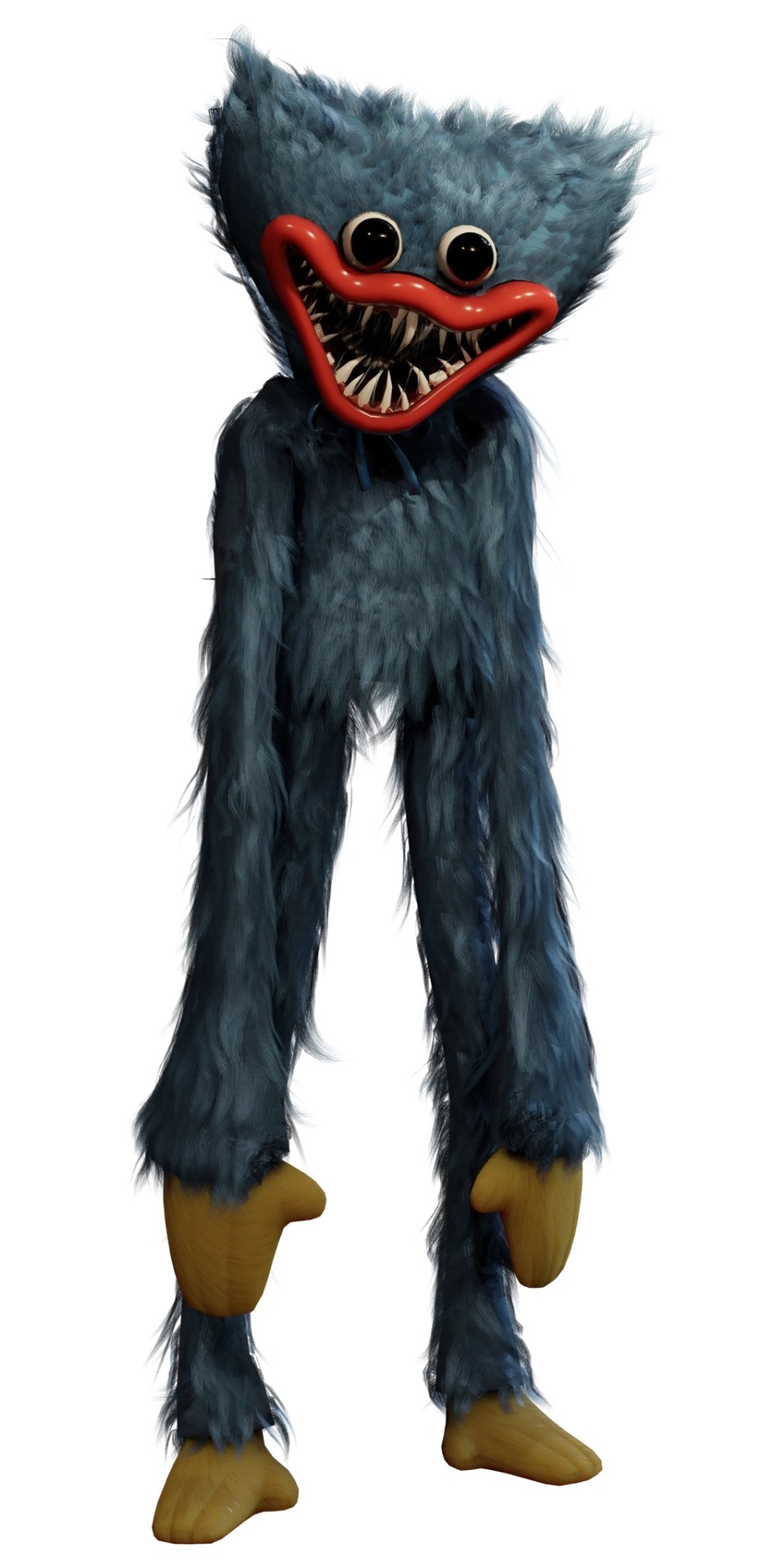
In the middle of my studying.
#there was also a bunch of other convoluted other stuff going on#but I don’t want to try and explain it#too complicated#my girlfriend was there too. which was cool#paters dream journal
2 notes
·
View notes
Text
I had a dream (I think) where there was this meme where you would show somebody a meme, and go to show them another one, and the next meme was an orange kitten on a motorcycle and the whole joke was that you would show it to the person for like a second, and then go ‘oh wait you’re not 18 yet!’ And run off and my brother did this whole song and dance to me like 5 times in a row and I was. So pissed. Shitty finger drawing of the meme
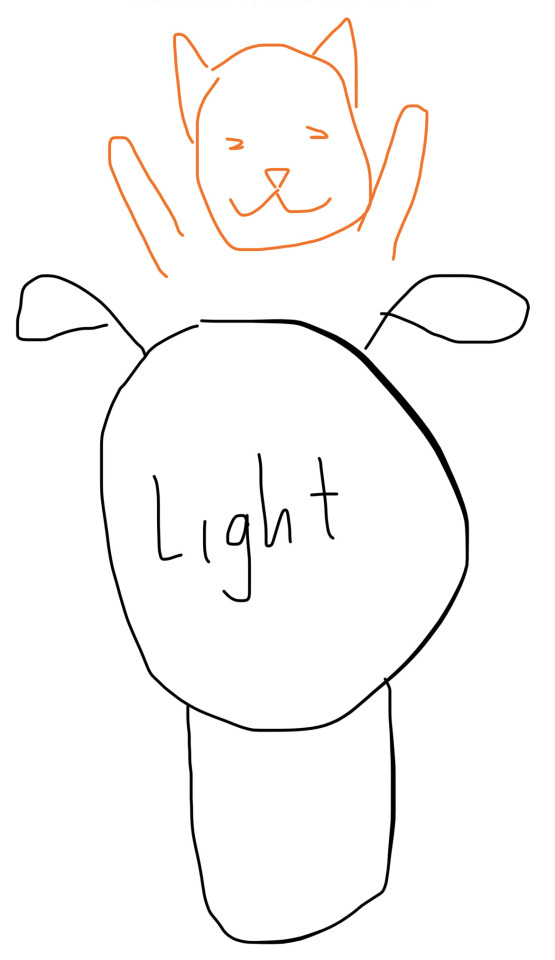
#I was especially pissed cuz I AM 18#let me see whatever weird shitty meme ur trying to show me#paters dream journal
2 notes
·
View notes